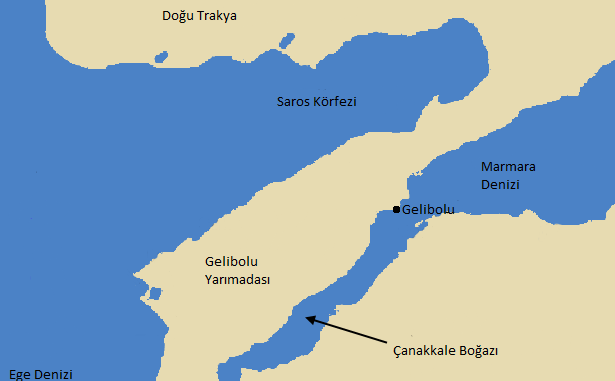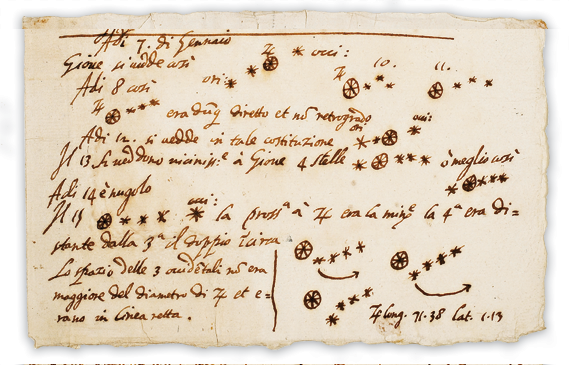
When the World Changed: Gallipoli and the Chief Vizier
 The future is hardly ever what we expect it to be. It almost always surprises us. This is proof enough that in any point of time, although we often write history as if it was inevitable, many possible futures stretch out before us. Sometimes there are pivot points in history when things change profoundly from what came before — or from what they might have been.
The future is hardly ever what we expect it to be. It almost always surprises us. This is proof enough that in any point of time, although we often write history as if it was inevitable, many possible futures stretch out before us. Sometimes there are pivot points in history when things change profoundly from what came before — or from what they might have been.
When Baha’u’llah sent his message to the kings – the Suriy-i-Muluk — he warned them that their actions had the power to change the future.
If ye pay no heed unto the counsels which, in peerless and unequivocal language, We have revealed in this Tablet, Divine chastisement shall assail you from every direction, and the sentence of His justice shall be pronounced against you. … Have mercy on yourselves and on those beneath you, …
The Suriy-i-Muluk from almost its opening verses advises the kings and rulers to improve governance: “compose your differences and reduce your armaments”, “heal the dissensions that divide you”, do not place the burden of excessive expenditure on the people”, “beware not to deal unjustly with anyone that appealeth to you”, “the poor are the Trust of God in your midst. … betray not His Trust”, “Take from this world only to the measure of your need”, “safeguard the rights of the downtrodden”, …
Rather than listening to Bahá’u’lláh, he was subjected to greater and greater oppressions until exiled to Akka. It is a pattern of human behaviour repeated time and again in human history: rather than listening to our prophets we persecute them, even though they come to foster human well-being. Today, Bahá’u’lláh’s counsel would be considered to constitute good government, (the opposite of the oppression common in Ottoman administration of the time). The only response Bahá’u’lláh received was persecution of himself and his followers.
As Bahá’u’lláh was exiled from Adrianople, he and his followers were initially sent to Gallipoli.
It is a place made famous by World War 1. Yet something else happened there.
On the way to Gallipoli, Bahá’u’lláh wrote a letter for the Chief Vizier of the Sultan (the Suriy-i-Rais). The pivot point of history had arrived.
The day is approaching when the Land of Mystery [Adrianople] and what is beside it shall be changed, and shall pass out of the hands of the King, and commotions shall appear, and the voice of lamentation shall be raised, and the evidences of mischief shall be revealed on all sides, and confusion shall spread by reason of that which hath befallen these captives at the hands of the hosts of oppression. The course of things shall be altered, and conditions shall wax so grievous, that the very sands on the desolate hills will moan, and the trees on the mountain will weep, and blood will flow out of all things. Then wilt thou behold the people in sore distress.
When we read “the course of things shall be altered” – it is perhaps hard to understand how this could be so. How could the persecution of this small group of people change the course of history?
A counter-factual perhaps helps. What if Bahá’u’lláh had not been exiled from Constantinople or Adrianople – what would have happened? We can get a sense by observing that wherever Bahá’u’lláh remained, the people grew to love him and eventually even the highest leaders of society became his admirers and turned to him for advice and counsel. Had Bahá’u’lláh remained near Constantinople eventually this would have occurred. These material considerations, hint at underlying spiritual forces, of which material reality is only a pale shadow.
Later, referring to this particular message Bahá’u’lláh draws the connection between the suffering of society and the silencing of his voice.
From the moment the Súriy-i-Ra’ís (Tablet to Ra’ís) was revealed until the present day, neither hath the world been tranquillized, nor have the hearts of its peoples been at rest. At one time it hath been agitated by contentions and disputes, at another it hath been convulsed by wars, and fallen a victim to inveterate diseases. Its sickness is approaching the stage of utter hopelessness, inasmuch as the true Physician is debarred from administering the remedy, whilst unskilled practitioners are regarded with favor, and are accorded full freedom to act.…[2]
Had Bahá’u’lláh’s counsels been listened to, it would have changed the course of history for the Ottoman Empire. This, in turn, would have changed the future of the Balkans. Which, in turn, would have changed the future of Europe – for the spark that lit the inferno of World War 1 was set in the Balkans. (Something Abdu’l Baha specifically predicted in 1912 during his journey to America).
As it was, the leaders of Constantinople had set a course for their own doom. They had “mercy neither on themselves nor those beneath them”.
When Bahá’u’lláh arrived in Gallipoli – he summoned the Captain of the guard and said to him: “Tell the king that his territory will pass out of his hands, and his affairs will be thrown into confusion.”
It was August 1868. Within 10 years the immediate prophecies of the Suriy-i-Rais came to fruition. Balyuzi records:
It took exactly a decade, but it came to pass. Ali Pasha, to whom the Suriy-i-Rais was addressed, was swept into oblivion within this decade. Abdu’l Aziz [the Sultan] was toppled from his throne in 1876, losing not only his throne but his life as well. The disastrous war of 1877-8 with Russia followed, which brought the Russians and their Bulgarian allies to the gates of the city of Constantine the Great. Adrianople was occupied by a relentless enemy, and the sufferings of the people were great. Aqa Rida, writing as he did in later years, quotes a Turkish captain, who had been in the territory where battles had raged, and who described most vividly the magnitude of the calamity which overtook the Ottoman power. ‘May God never again make it the lot of a people’, the Turkish captain had said, ‘to witness such times and such days. Truly, blood flowed beneath the trees and beneath the stones. The whole plain was bathed in blood, and consternation was such as no one had ever known.’ [Balyuzi, 262]
Before this war, the Ottoman Empire had still stretched beyond the Danube. After it, it was stripped of the majority of its European possessions, a process which continued in the following decades.
We may also observe that the dismemberment of the Ottoman Empire is still today cited as the origin of the current conflicts that are raging in parts of the Middle East.
In 1878, a scholar in Iran, Mirza Abu’l Fadl, had been waiting to see whether Bahá’u’lláh’s prophecies about the Ottoman Empire would come to pass. When they did, he became a Baha’i.
As we have also seen, other specific prophecies of Baha’u’llah concerning Germany were fulfilled. Those prophecies were published in printed editions of Bahá’u’lláh’s writings decades before they came to pass. An English translation was also published by E.G. Browne in 1889 in the Journal of the Royal Asiatic Society. Here is E.G. Browne’s translation of the passage:
banks of the river Rhine! we have seen you drenched in gore because the swords of retribution were drawn against you, and you shall have another turn. And we hear the lamentation of Berlin, though it be to-day in manifest glory.
Such clearly documented predictions speak for themselves. There is no question that Bahá’u’lláh had a foresight of the future not possessed by ordinary human beings.
Sources:
H.M. Balyuzi, Bahá’u’lláh, the King of Glory
Adib Taherzadeh, The Revelation of Bahá’u’lláh
E.G. Browne, Journal of the Royal Asiatic Society, 1889
(This article is the 136th in a series of what I hope will be 200 articles in 200 days for the 200th anniversary of the birth of Bahá’u’lláh. The anniversary is being celebrated around the world on 21 and 22 October 2017, The articles are simply my personal reflections on Bahá’u’lláh’s life and work. Any errors or inadequacies in these articles are solely my responsibility.)
Image Credits: By Manuel F. V. G. Mourão (translation: Homonihilis) (File: Península de Gallipoli.png) [CC BY-SA 4.0 (http://creativecommons.org/licenses/by-sa/4.0)], via Wikimedia Commons






